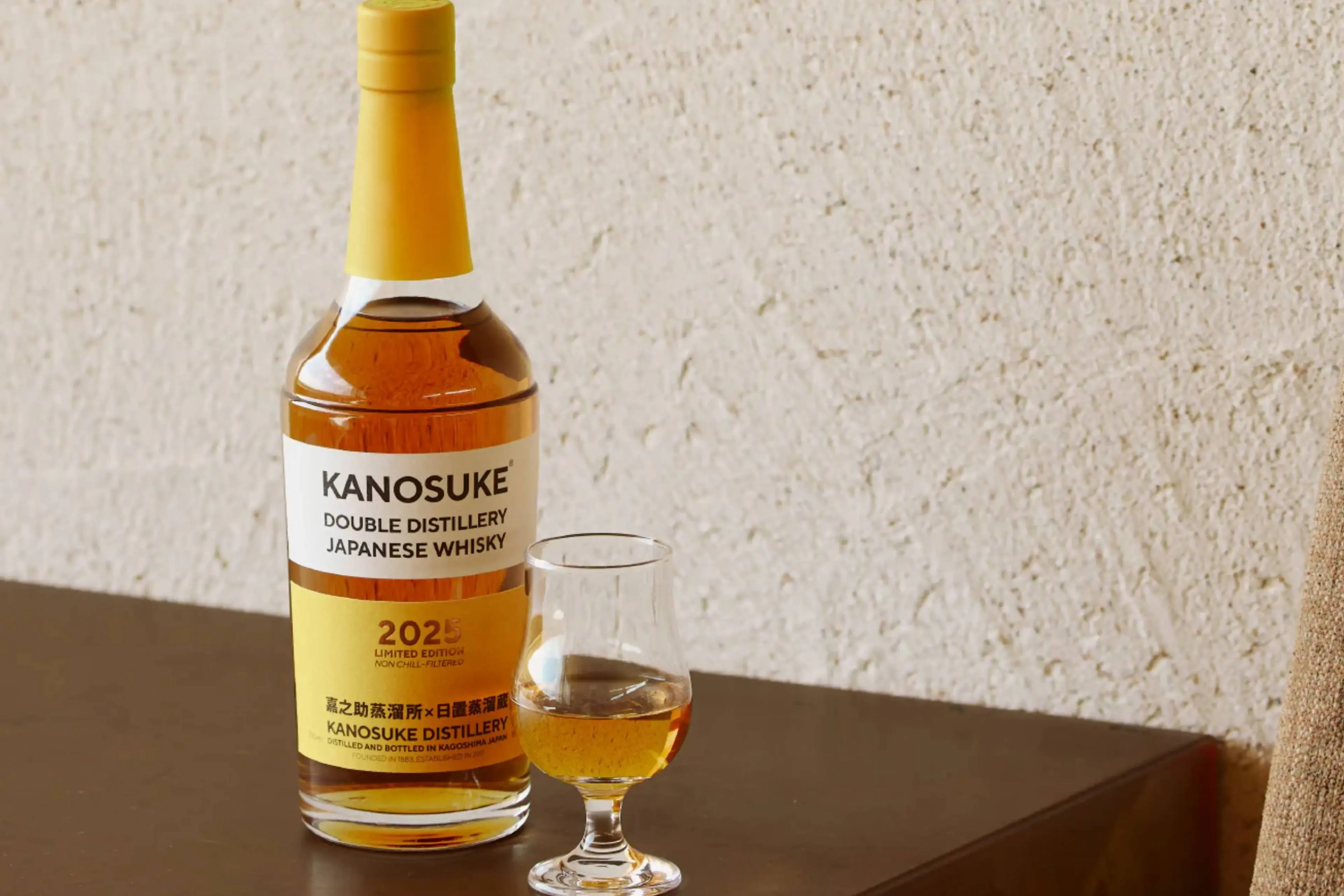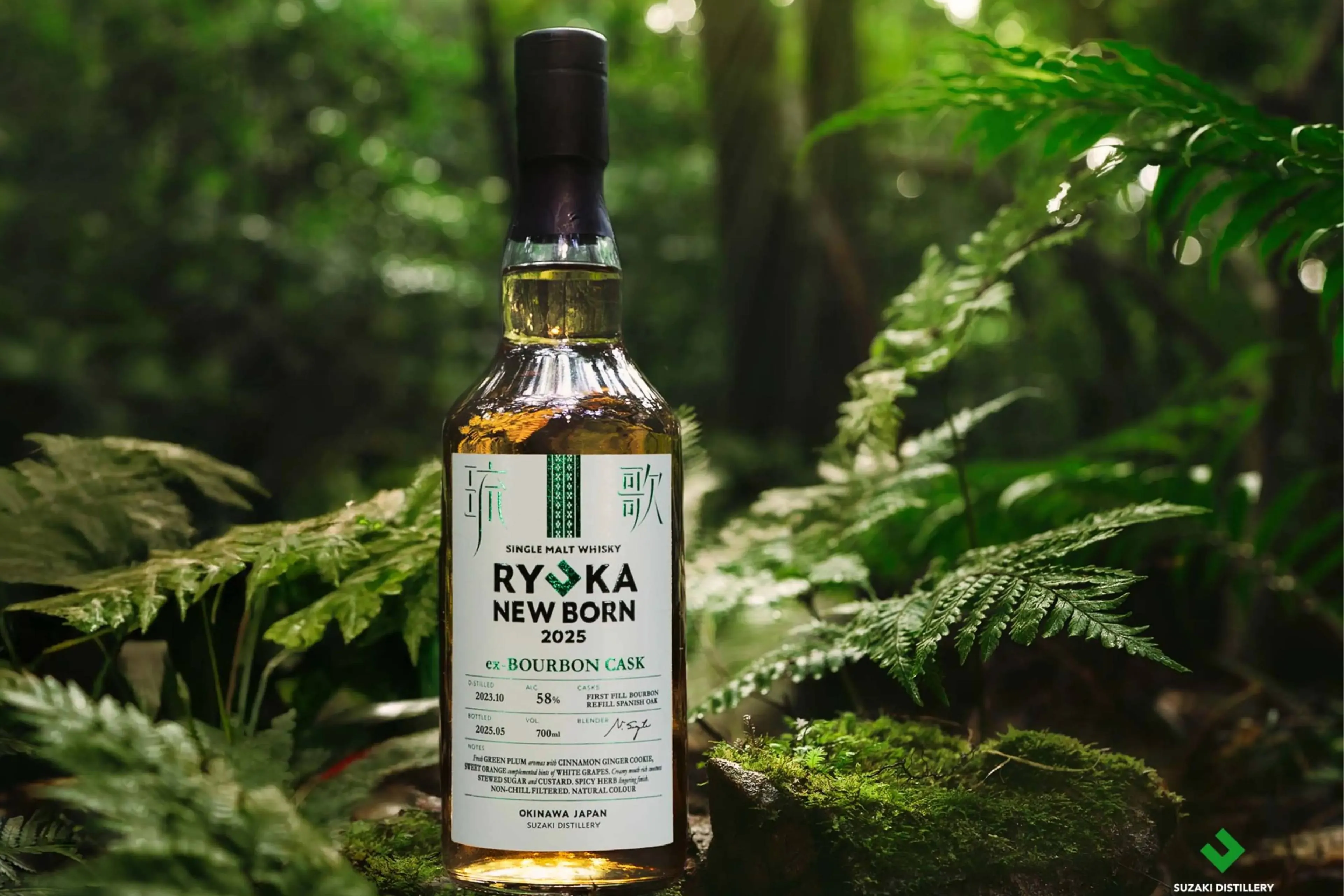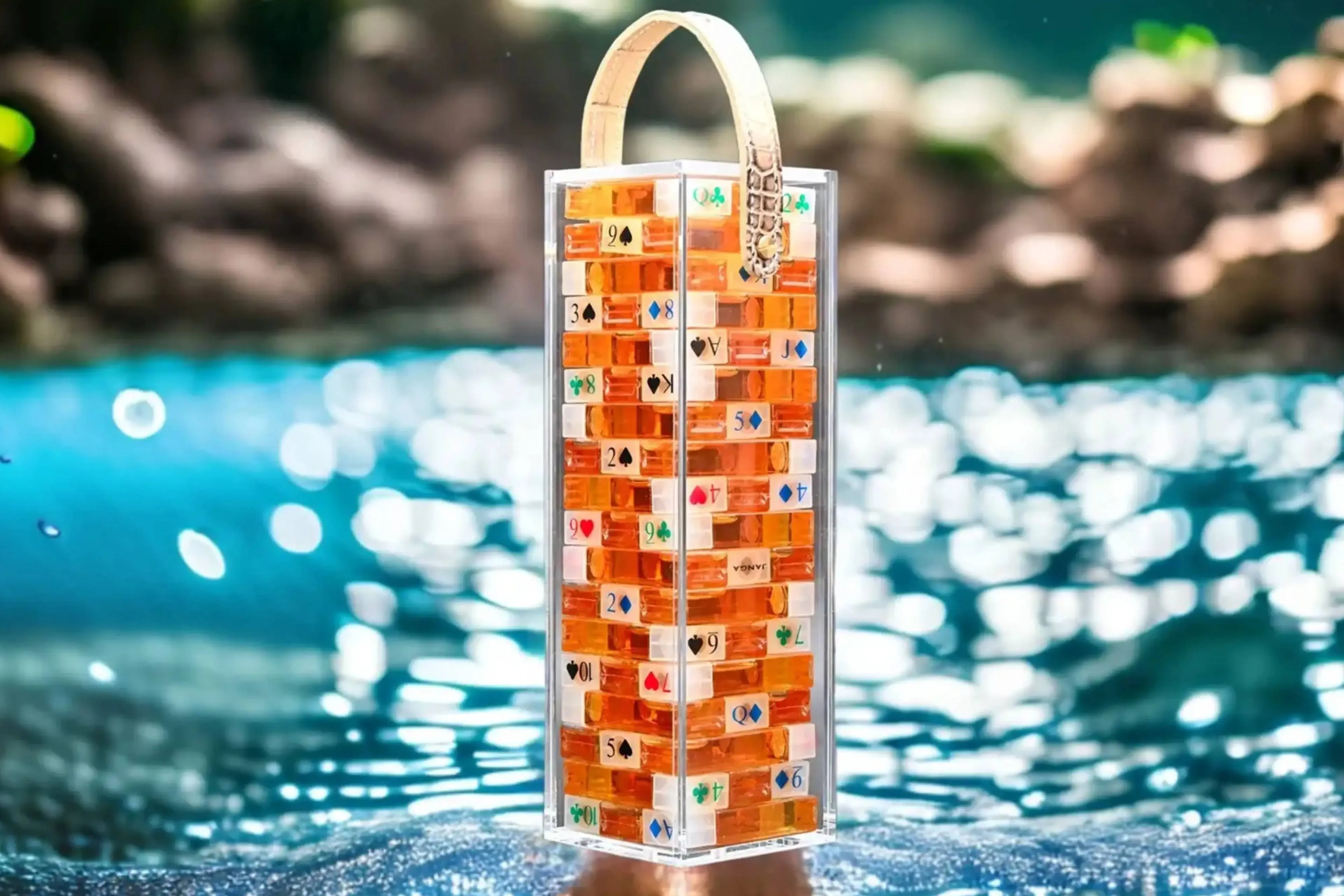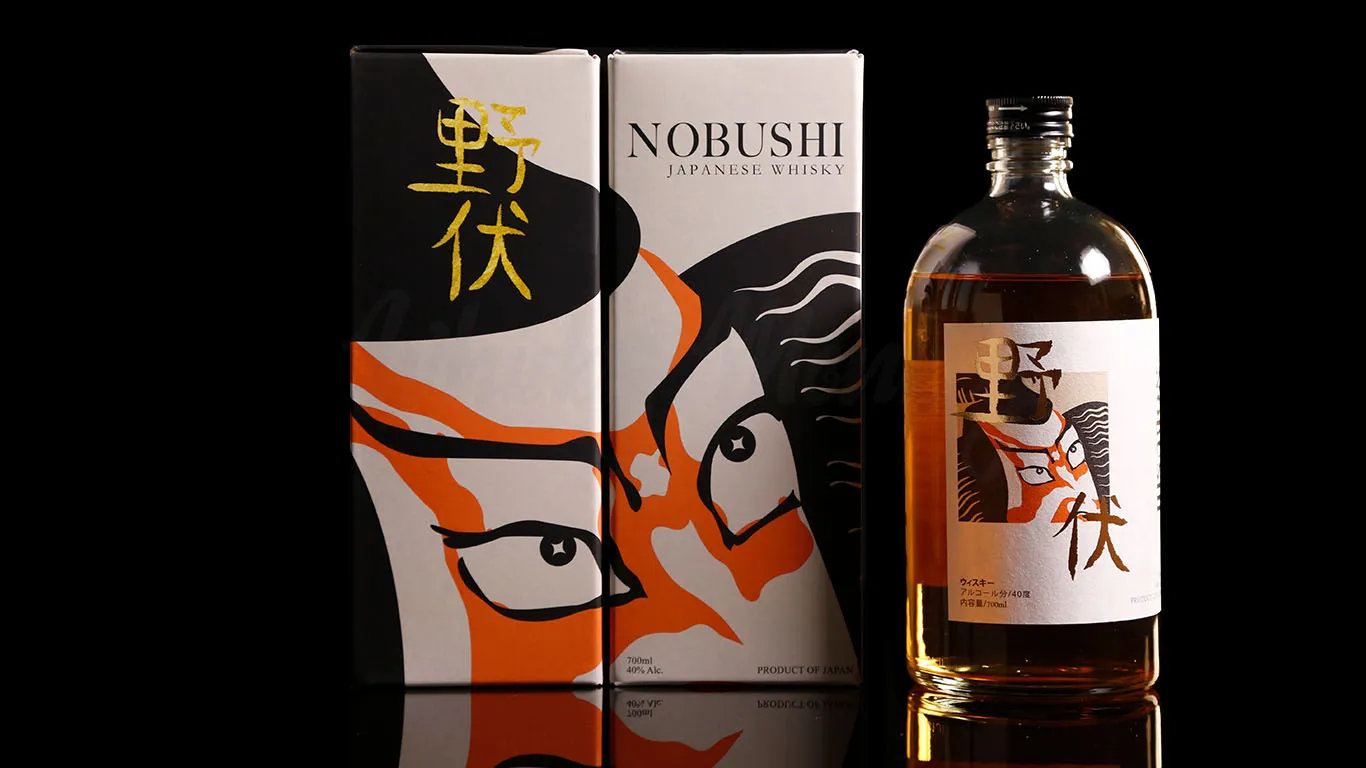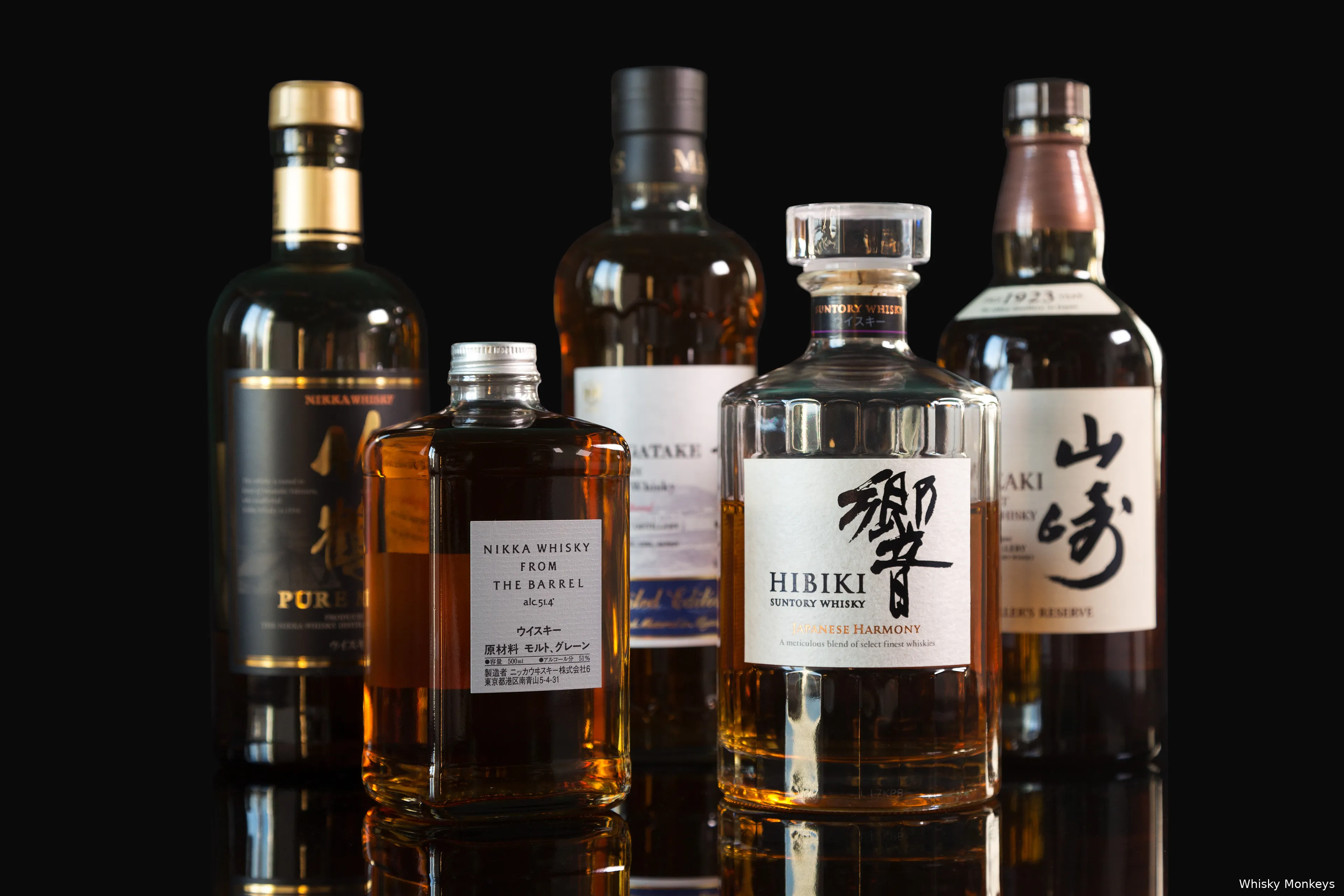
Japanese whisky enjoys worldwide popularity. But what makes it so beloved? Why do collectors, enthusiasts, and newcomers reach for a bottle of Yamazaki or Nikka as if it were a golden ticket? We break it down for you.
For years, Japanese whisky has been on a quiet rise. Well, not so quiet anymore. The country has already won significant awards for various whiskies, and more and more bottles are also reaching our shores.
Perfection in Every Detail
Japan is renowned for its precision. Consider ultra-sharp knives, meticulously performed tea ceremonies. And what about the beautifully crafted sushi in restaurants? Whisky must also find its way into our hearts and hands in a delightful manner.
Where Scottish distilleries often lean on tradition and terroir, the Japanese go all-in on control. Water is carefully selected (usually from crystal clear mountain springs), fermentation almost conducted with military discipline, and the casks in which whisky matures guarded with near-religious fervor. Perhaps a tad exaggerated, but you get the picture.
Scarcity Fuels Hype
Simply put, there's not that much Japanese whisky. Compared to Scotland, which boasts hundreds of distilleries, Japan's handful of producers seem pretty modest. The sudden global demand since the early 2000s led to an absolute run on Japanese bottles – and to scarcity.
Brands like Yamazaki 18, Hakushu 12, and Hibiki 21 have become so rare that you can hardly find them in stores anymore. If you do spot them, they certainly aren't a steal. This only adds to the allure of these whiskies. People naturally desire something special.
Plus, consider this: the esteemed mizunara oak, which lends aromas of sandalwood, coconut, and incense, only grows in Japan.
Read also
Taste
The third reason for the popularity of Japanese whisky has everything to do with the taste. Japanese whisky is not an explosive flavor bomb like some Islay malts, but brings very balanced flavors.
Lightly smoky? Sometimes. Sweet and floral? Often. Layered? Always. Japanese whiskies generally have an elegant taste profile that appeals to both beginners and seasoned whisky drinkers.
Take the Hibiki Japanese Harmony: a blend with notes of honey, orange peel, white chocolate, and a hint of oak. Or Nikka From The Barrel, which combines power and finesse with spices, caramel, and a subtle kick.
The focus is often on drinkability, complexity, and harmony. And believe it or not, these traits align perfectly with Japanese culinary culture. So yes, you can indeed pair Japanese whisky with sushi or ramen.
Last but not least: talking about elegance, we shouldn't overlook the attractive bottle labels and Japanese characters. They certainly pique one's curiosity.
Scottish Roots, Japanese Soul
The history of Japanese whisky reads like a novel. It all began with Masataka Taketsuru, a Japanese chemist who traveled to Scotland in 1918 to learn the craft. He married a Scottish woman, studied at distilleries, and returned to Japan armed with knowledge.
He first worked with Suntory, but later established his own distillery. To this day, his influence is evident in the whiskies of both brands.
The story of Japanese dedication combined with Scottish tradition captures the imagination. It piques the curiosity of Scottish whisky lovers, wondering what exactly this Japanese man brought back from Scotland. The whiskies didn't just pop out of nowhere, after all. Add to this the picturesque mountain landscapes set around many Japanese distilleries, and the picture is complete.
International Recognition
And finally, we arrive at the last reason we mentioned at the start of this piece: awards.
The general public really started taking notice of Japanese whisky when a Japanese dram was bestowed the title "Best Whisky in the World".
In 2015, Jim Murray in his famous Whisky Bible named Yamazaki Sherry Cask 2013 the number 1 – topping all Scottish, Irish, and American competitors. You could say that the whisky world was rocked to its core.
Since then, international recognition hasn't stopped. Japanese whiskies keep winning awards in London, San Francisco, and elsewhere. This recognition not only creates more demand but also instills more trust. After all, if a bottle is labeled “the best,” everyone wants a taste. Easy as that.
And with that, we come to the end of this article. We have one final question for you: what's the best Japanese whisky you have tasted?
Read also
loading
POPULAR NEWS
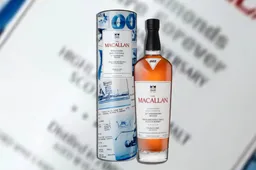
Update: The Macallan James Bond Diamonds Are Forever 55th Anniversary Whisky: This is What We Know
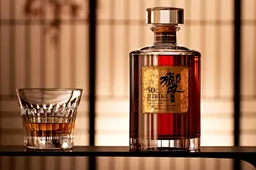
The World’s Best Whiskies of 2026: World Whiskies Awards Winners

Whisky Slowdown Reaches Islay as Two Mayor Distilleries Scale Down
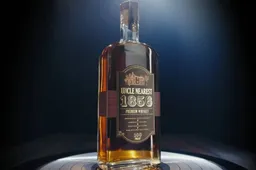
Uncle Nearest’s Financial Turmoil is Even Worse Than Everyone Thought
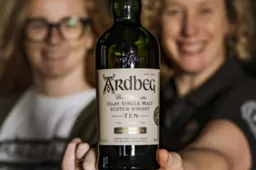
Bold, Peaty and Lush: You Don't Want To Skip The 2026 Ardbeg Committee Whisky
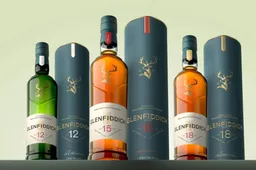
A Fresh Identity: Glenfiddich Introduces Sleek New Packaging
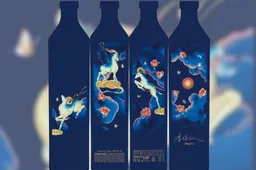
Johnnie Walker Unveils a New Limited Edition and It's Not the Year of the Horse Bottle
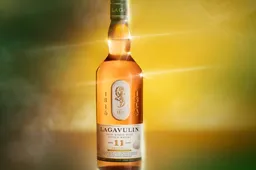
Lagavulin Unveils the 11-Year-Old Sweet Peat Whisky: Islay smoke with a mellow, sweet twist
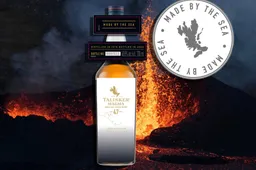
Talisker Magma Spotted: Ultra-Rare Single Malt Distilled in 1978 May Be Coming
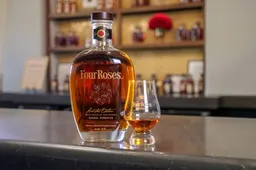
Big American Distillery Back in American Hands After More Than 20 Years
LATEST COMMENTS
- There is no distillery equipment there and also no licences to produce or sell alcohol.TRC19-12-2025
- Hi Yvonne, Thank you for your response and for sharing the video. Unfortunately, the evidence you referred to consists only of two people talking about the whisky, without any explanation or identification. We have not spoken to the individuals in the video ourselves, nor can we verify who they are. We describe it as a Chinese whisky because it is released by a Chinese distillery. As you mentioned, the distillery has chosen to label the product as “pure malt” instead of “Chinese whisky.” Based on that, we do not believe they are doing anything illegal.M0nkey16-11-2025
- So - you have the proof......where's your write up?Yvonne16-11-2025
- You are absolutely right. Luckily that doesn't matter for the taste of the whisky. Have you tried it yet?M0nkey05-11-2025
- Guess what? Finland is not part of Scandinavia.Gray105-11-2025
- Throw in the towel? You mean restructure to compete and win in a challenging industry environment.WestwardFounder21-10-2025
- There is nothing legally to prevent the English whisky GI from coming into force, it complies with all the relevant laws and the single malt definition follows the precedent of Welsh whisky and US whiskyChefBear15-10-2025
- Three emails sent (two with videos, linked to a Google Drive Share). 1. The original video. 2. The video with subtitles as it was shared on YouTube 3. Screen grab of the YouTube channel where the video was blocked due to Pernod Ricard lobbying. The story was covered on Drinks Intel at the time - link here - https://drinks-intel.com/subscriber-news/pernod-ricards-the-chuan-pure-malt-whisky-not-sourced-solely-from-china-global-drinks-intel-exclusive/Yvonne10-10-2025
- Hi Yvonne, Thank you for your interesting comment. Could you share your copy with us, so we can adjust our item accordingly? Mail us at [email protected]. Thank you in advance.M0nkey09-10-2025
- Let's keep this factually correct. Pernod Ricard DID NOT release a Chinese whisky. Their first output from The Chuan (the name of the distillery in Sichuan, China) wasn't fit for bottling. What they actually bottled was imported Scotch whisky. This is why the product is called "PURE MALT" and not "Chinese Whisky" - because Pure Malt is not a regulated term - this is not a secret. This was exposed about a week after they released it. There were even videos about their own staff on site admitting it was made from imported whisky - which Pernod Ricard got the lawyers onto to get the video pulled. I've got a copy if you want it.Yvonne09-10-2025
Loading
